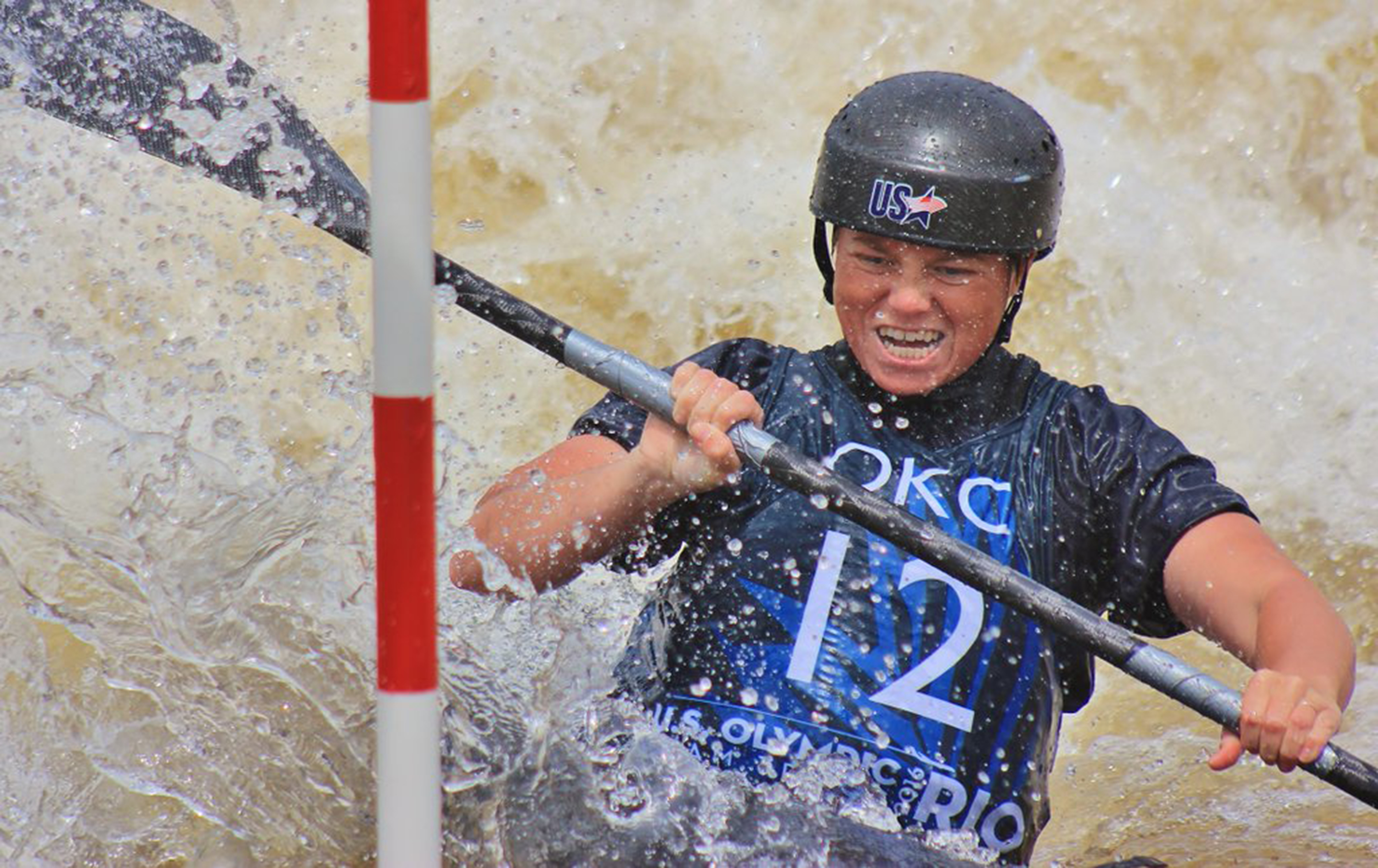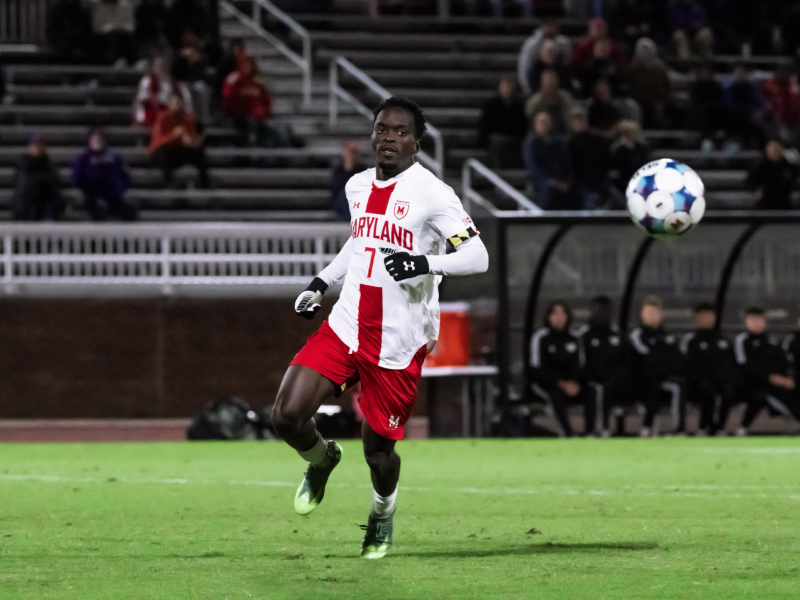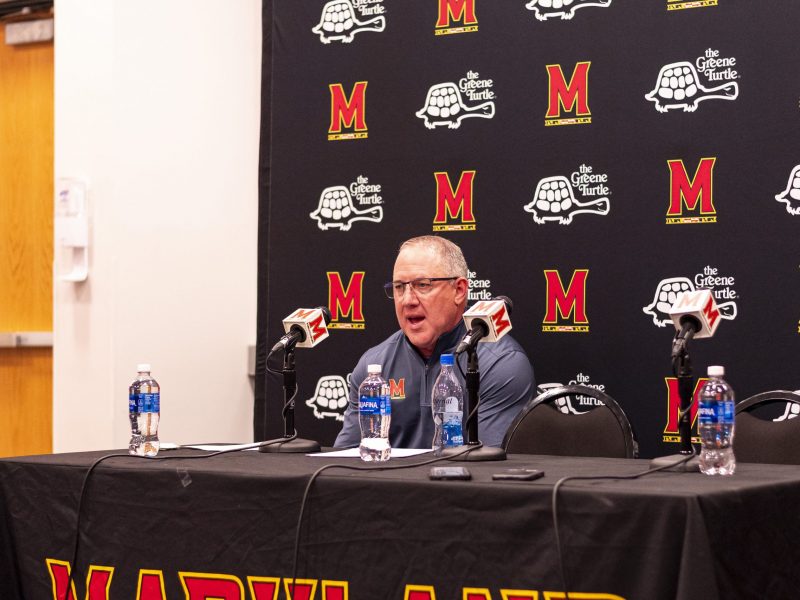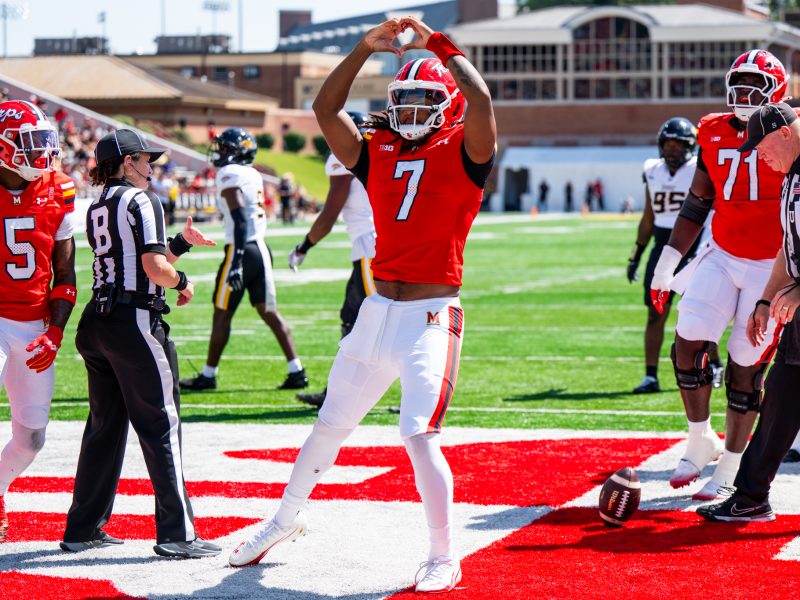When Ashley Nee ventured to the other side of the two-acre lake in Darnestown, Maryland, to learn how to kayak, she didn’t know about Valley Mill summer camp’s Olympic history. After all, she was just 10 years old.
Nee spent that first afternoon going over simple safety protocol — mostly flipping the boat over and learning how to get out — without much interest.
It wasn’t until she took a kayak onto the lake for the first time that she said she fell in love with the sport.
From that moment on, Nee set her sights on representing the U.S. in the Olympics. And years later, as a 27-year-old University of Maryland student with classes left to graduate, Nee will fulfill that goal when she competes in the Rio Games in the women’s single kayak competition.
But before adding her name to the extensive list of Olympic kayakers from Maryland — including eight athletes who attended Valley Mill — she had to push through the disappointment of narrowly missing out on the 2008 and 2012 games.
“After having missed [the Olympics] so closely a couple of times … it’s going to take walking into the opening ceremony to really believe it’s happening,” Nee said. “It was just such a big dream of mine that it feels a little bit like a fairy tale.”
Nee experienced her first heartbreak when she was 17.
After Nee wiped out during a training event in preparation for the 2008 Beijing Games, she felt immediate pain in her shoulder. She said she “couldn’t even take another stroke” and knew the injury was severe.
“I was a little 17-year-old,” Nee said. “I think the whitewater was a little big for me.”
Nee had torn her labrum, an injury that typically requires surgery. However, that wasn’t an option with U.S. Olympic team trials just four months away.
So she pushed through the pain. While each day of practice was excruciating, she held out hope that she could still win the team trials and make the Olympics.
Instead, Nee placed fourth.
Nee said the setback left her “devastated,” so she moved to Hawaii to escape the lifestyle that had consumed her since her first day kayaking.
“When I moved to Hawaii I didn’t want anything to do with paddling,” Nee explained. “I had been paddling since I was 10 and racing since I was 12. I was just done.”
“For once I just wanted to go to school normally,” she added.
Former U.S. teammate Aaron Mann said that desire is common among young kayakers, who often struggle to lead a regular life due to the demands of the sport.
“It’s very hard to fit everything in if you’re going to school, training and working,” Mann explained. “You’re sacrificing some stuff for sure.”
Almost two years into her time in Hawaii, Nee was having a conversation with her wife, Ashley McEwan, when a familiar topic came up.
“You know you love kayaking,” McEwan said.
“No I don’t,” Nee replied. “I don’t need it anymore.”
“You know you do,” her wife insisted.
Two weeks later, Nee moved back to Maryland. She transferred to this university and began training for the 2012 London Games.
“It just felt like unfinished business,” she said.
Still, Nee’s shoulder injury continued to be an issue. She went to physical therapy and wasn’t satisfied with the results.
“I was stuck at 30 degrees less rotation than I should have,” Nee said, “And I’d been working on it for a year.”
She sought out the medical care of Kala Flagg, a trainer at this university’s athletic department. In about 10 minutes, her shoulder had 15 more degrees of motion. In a few weeks, she felt better.
“[Kala] was a total healer,” Nee said. “Without that, I would still be not have been able to paddle.”
Nee said Flagg inspired her to study kinesiology. She hopes to one day help people rehab injuries in the same way.
Nee said she also took an increased interest in helping other female kayakers. Caroline Queen, a longtime training partner who is three years younger, recalled Nee taking on a leadership role during their partnership.
Queen said Nee, who she saw as an older sister figure, put together a training camp for 10- to 16-year-old female kayakers competing in the area.
“I could not have been the athlete I was without Ashley,” Queen said. “She certainly provided some really important leadership that helped guide me.”
Nee faced more disappointment when she lost a qualifying tiebreaker to Queen and missed out on the 2012 Olympics. The tiebreaker looked at who performed better at the 2011 World Championships, and Nee finished two spots behind Queen, who punched her ticket to London.
Though Nee was proud to see her training partner achieve her dream, the setback was another major blow.
“It was still the same feeling of knives in the stomach,” Nee remembered. “It took the wind out of me.”
It’s something that weighed on Queen, too.
“I think about it very often,” Queen said. “When you’re neck-and-neck with someone for the majority of your career … that’s huge. And I think we were so evenly matched in a lot of ways.”
This time, though, Nee was better prepared to handle the adversity.
One day after learning she would not participate in the London Games, she got on a plane to France and started training for the 2016 Olympics.
“I did not want to paddle,” Nee said. “I was just bummed. But [getting back to work] was really important.”
Nee said she felt good about her performance level as she prepared for the Rio Games, but she was worried when she learned the U.S. might not have a berth for the single women’s kayak event.
A gold medal finish from Nee in the 2015 Pan American Games would have clinched a spot for Team USA, but she finished third in that competition, just 0.03 seconds back of first place.
However, after a nine-month wait, the International Canoe Federation decided first-place Canada had to give up its spot because it had already filled its quota for canoe and kayak athletes. Second-place Brazil had already earned its berth as the host nation, so Nee earned a chance to compete in the Rio Games.
She found out the news while sitting in a car with a couple of coaches. One of them, who had just received a confirmation email, said two words that changed Nee’s future.
“It’s official,” the coach said.
“What do you mean?” Nee responded.
“You have a berth,” he explained.
Nee didn’t have much time to process the news, as she was back on the water 15 minutes later.
Afterwards, she went out for a steak dinner to celebrate.
But for Nee, reaching the Olympics is not enough. She believes it’s important to use her experience to help the next generation of women kayakers.
“I’m pretty inspired to give back and coach and try to make their lives a little easier,” Nee said. “I’ve taught with three or four different kayak schools in the Maryland area and I love it. I love teaching kids, adults, everybody.”
Nee said helping somebody surf their first wave “brings back all of the memories and gives me so much energy.”
Queen, who once benefited from Nee’s leadership as a young competitor, is thrilled to see her former training partner finally achieve her dream. She’ll be cheering for her Aug. 8 when Nee participates in preliminary heats.
“I’m glad that it’s her time to step up to the plate,” Queen said.



